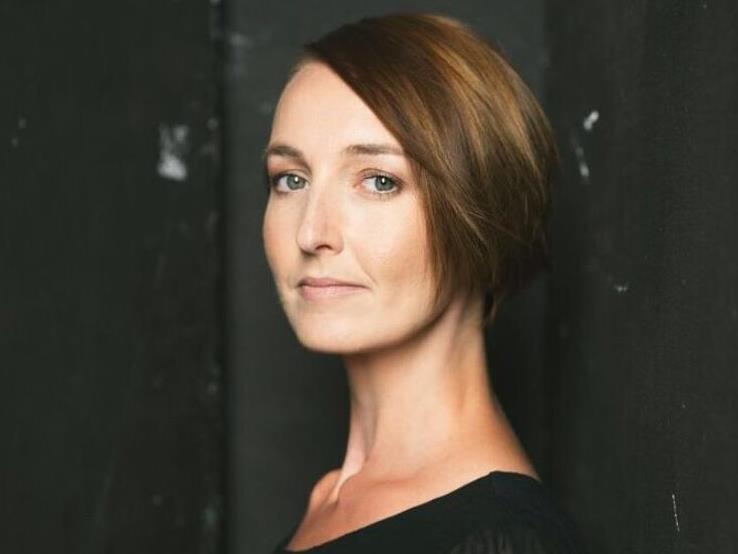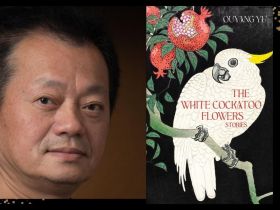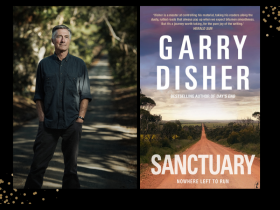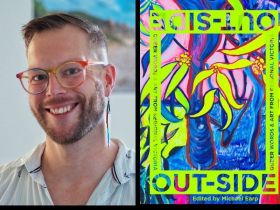Sarah Schmidt has found the move to festival director has informed her creative practice. Image supplied.
Creativity is often elusive. It’s something I try not to overthink, not least because I often become strangely superstitious about my own creative practice: if I think too much about how it works, I’ll start interrogating my methods too much and then it won’t work.
And yet, I always want to know exactly how other people write and how they develop their ideas. I want them to tell me their secrets in the hope their brilliance will rub off on me and my writing will lift to their level.
If there’s one thing I’ve learnt about creativity is that it’s often about being honest. And so to honesty, it’s recently occurred to me that one reason I love my job is that being able to program festivals and events, such as the Booklovers Festival, is that I can entice writers and artists whom I admire to the library, so I can learn from their wisdom and experience.
Festival guests often talk about prioritising time for yourself to write – especially when you work and have a family – and embracing your creative rituals to develop a practice that works for you. After a few years of listening to wonderful advice, I’ve tricked myself into ‘interrogating’ my own creative practice and realised my own methods often align with theirs.
First: time to write. We all can’t write full time. Even though I’m now fortunate enough that I can write two working days a week, it’s not enough time.
I will often wake up early to write before I have to get my child ready for school and go to work. I will write for a few hours most nights after she goes to bed. I take my notebook with me everywhere so I can jot down ideas and scenes anywhere I am (work, public transport, out walking). Sometimes I only have 30 minutes to write in the evening. I take whatever I can.
Before my debut novel was published, and I was essentially working full time, I could only write before and after work and on weekends when my daughter slept. I often prioritised writing over hours of housework. I still do.
Second: creative rituals are important, no matter how weird they seem. One of mine is dreaming. If I don’t dream, I cannot write. All that is me, from page to skin – the best, the worst, the ludicrous and irrational, the patient and accepting, the being that is most creatively true – lives inside dreams. I have known this from an early age, and accepted that this is where all stories, the entire self, are stored: we just have to be vulnerable in sleep to find it all and be open to what could happen.
See What I Have Done came to me in a dream, as did my current novel-in-progress, Blue Hour. Sometimes I will dream scenes, characters, possibilities, textures of narrative, themes. But I have also learnt to distinguish the mundane, thought-processing dreams from the guttural, intuitive dreams. The differences are enormous, especially if they’re recurring dreams.
My tip here is to embrace what comes to you in sleep.
And speaking of embracing creative vulnerability, I highly recommend taking up long-form improvised comedy. I turned to improv about 18 months ago, when I felt myself becoming scared of writing my new novel, and it was a revelation. Improv has changed my life in so many ways, especially because it taught me to stop second-guessing my intuition.
I’ve found it so exciting to be involved with the YPRL Booklovers Festival. There are so many treats on offer this year, especially for writers and creatives. I’m looking forward to the creative retreat: an entire weekend to spend at the library for working on new or existing projects, including workshops on writing memoir and (my favourite) improv comedy.
There will also be another full-day retreat, including conversations with several authors, called Permission to Write. The festival hosts a fact/fiction conversation series, pairing fiction and nonfiction authors to discuss their books, influences and writing process and compare their work.
Finally, Waterways and Journeys with Eugenia Flynn and Timmah Ball promises to be a fascinating discussion about contemporary Aboriginal storytelling and the influence of culture and family history.
Working on a festival has given me a bigger canvas but it still feels like a creative act.
Sarah Schmidt is the festival director of the 11th Annual Booklovers Festival Yarra Plenty Regional Library (branches at Greensborough, Eltham, Ivanhoe, Lalor, Mill Park, Rosanna, Thomastown, Watsonia and Whittlesea). The full program is now available.





